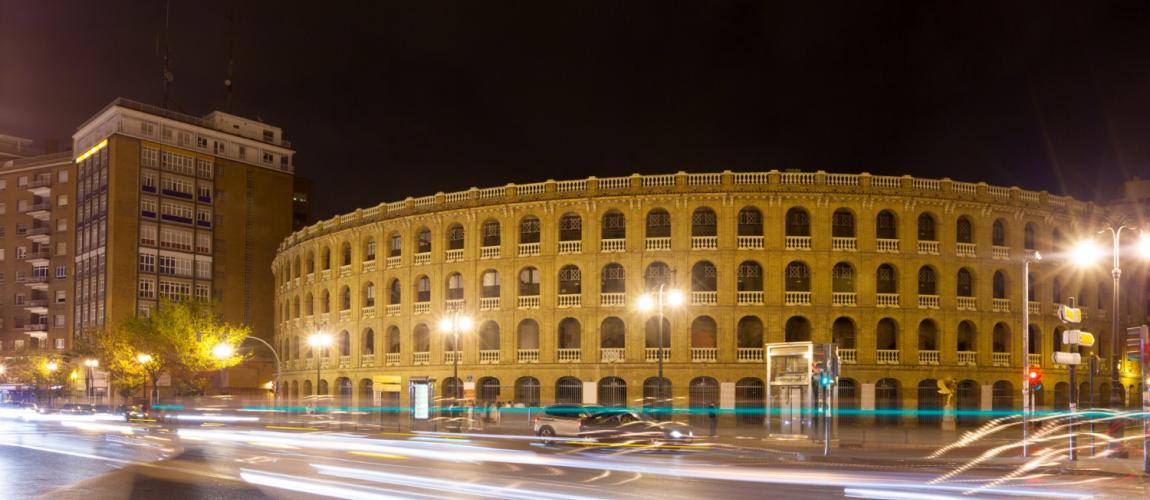Campin Coliseum (Movistar Arena), Bogota, Colombia

Photo Credit: Image by Freepik
On this page: A case study on Campin Coliseum (Movistar Arena), Bogota, Colombia. Find more at the Municipal Public-Private Partnership Framework - Project Summaries section for brief summaries of around 100 projects from around the world, examples of successes and challenges, as well as innovative ideas on solutions, or visit the Guidelines on Innovative Revenues for Infrastructure section.
Project Summary: Background The Coliseo Cubierto El Campin is a multipurpose event facility constructed in 1973 in Colombia’s capital city, Bogota. The coliseum provides ample space to carry out a wide range of sporting, artistic, musical, and other social events. After many years of use, the Coliseo el Campin was showing severe signs of deterioration. By 2011, it was clear that the Coliseo needed substantial technical and structural upgrades. Project Structure In September 2012, Colombiana de Escenarios S.A.S. presented an unsolicited proposal to the entity in charge of the facility, Instituto Distrital de Recreación y Deporte (IDRD), to carry out the structural renovation, technological update, and operation and maintenance of Coliseo, now called Movistar Arena. Per the unsolicited proposal, IDRD would undertake full responsibility for the design, financing, and construction of the project. The private financing would be a mix of 50 percent equity and 50 percent debt, and no public resources were to be used for this project. After reviewing the project’s feasibility study, assessing the proposal’s technical and financial aspects, and fulfilling the legally established procedures for unsolicited proposals, the parties entered into a concession agreement in December 2015. The agreement is structured as a 300-month concession that provides the concessionaire with exclusive rights of usage over the public property to complete the architectural renovation and technological update and operate and maintain the Arena. The contract value is estimated at COP 90 billion (USD 29 million). The project includes the rehabilitation of the Arena, to add capacity for up to 17,000 spectators, 14 boxes (special seating spaces), and 2 VIP rooms; construction of a new building for users’ circulation, evacuation routes, food courts, and restrooms; construction of a three-story parking building with capacity for 330 vehicles; a closed-circuit TV system and exterior urbanism works. Rehabilitation and renovation of existing public areas, such as gardens, sidewalks, and plazas, were included as part of the urban intervention, which would also help improve public access to the renovated facility. The concessionaire derives revenue from the Arena’s usage right fees, sponsorship fees –such as the name right fees currently paid by Telefonica - Movistar (a telecommunications company), commercial exploitation revenues, and any other monetary or non-monetary revenue reasonably within the ambit of the project. The concessionaire agreed to pay IDRD a monthly amount equal to two percent of the project’s gross revenues. In addition, IDRD or any IDRD-designated entity is entitled to use the Arena for a total of 12 days per year free of charge, for free-entrance events. These 12 days have an estimated value of COP 960 million per year (USD 310,000). Lessons Learned The project was successfully inaugurated on October 21, 20181 and has been reported to be an excellent facility for cultural and sporting events. The following are the lessons learned from this project. Having an established regulatory framework for managing unsolicited proposals is an important step in managing and potentially leveraging such proposals. It is best practice to do an in-depth and thorough study of the implications of carrying out an unsolicited proposal, in addition to having a real understanding of the actual need for the proposed project. This is necessary for government to understand and evaluate the impact, benefits, and weaknesses of an unsolicited proposal. In this case, Colombian national laws demand a special study, process, and analysis for unsolicited proposals. Questions and complementary information were solicited from the private initiator; certifications about financing and borrowing capabilities and investment experience were also required by the contracting authority. In addition, the project was subject to a series of requirements and safeguards, including: allowing third parties to participate, question, and comment on the project; asking specialized public entities and external experts to review and validate the proposal; and publicly publishing the proposal for third parties to express interest in executing the project. Footnote 1: Source(s) accessed on February 5, 2019 https://www.contratos. gov.co/consultas/ detalleProceso. do?numConstancia= 15-20-855 http://www. contraloriabogota. gov.co/sites/default/ files/Contenido/ Informes/Estructurales/ Planeaci%C3%B3n/ 2018%20Informe%20 de%20Asociaciones %20P%C3%BAblico %20Privadas%20 en%20Bogot%C3%A1. pdf
The Guidelines on Innovative Revenues for Infrastructure (IRI) is intended to be a living document and will be reviewed at regular intervals. They have not been prepared with any specific transaction in mind and are meant to serve only as general guidance. It is therefore critical that the Guidelines be reviewed and adapted for specific transactions.
To find more, visit the Innovative Revenues for Infrastructure section and the Content Outline, or Download the Full Report. For feedback on the content of this section of the website or suggestions for links or materials that could be included, please contact the Public-Private Partnership Resource Center at ppp@worldbank.org.
Updated:
TABLE OF CONTENTS
I. Innovative Revenues for Infrastructure (IRI)
2. Introduction to Commercial Value Capture (CVC)
3. Applying CVC in Infrastructure Projects
2. Case Studies in CVC from International Experiences
Related Content
Select WBG PPP Toolkits
Featured Section Links
Additional Resources
Climate-Smart PPPs
Type of ResourceFinance Structures for PPP
Type of ResourceFinancing and Risk Mitigation
Type of Resource